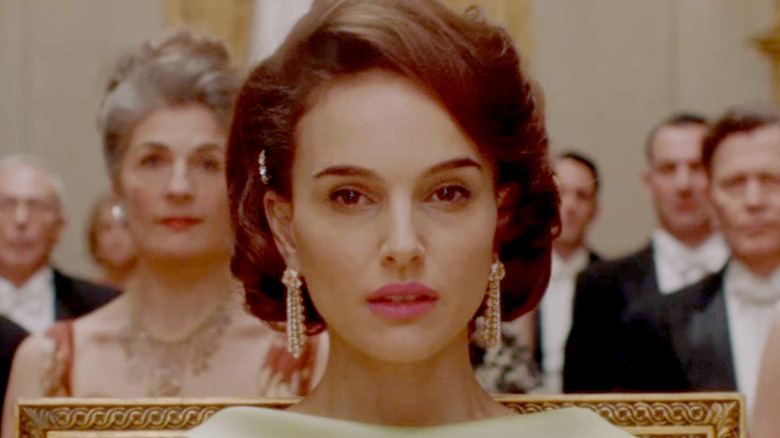
The traditional biopic seems like it should be pretty easy to make. After all, the subject has already done all the hard work. You just need to pick the best bits of their lives and slap them up on the big screen, right?
But that's where things start to get tricky. Do you recreate a list of chronological events that follow the subject from the cradle to grave, and hope that a classically-trained English actor can elevate the film beyond its fairly uninspired structure? Do hone in on one specific moment in person's life? Do you scrap conventional storytelling entirely and go for something totally avant-garde?
There are a lot of variables at play, and that's not even getting into how you find your leading actor: Do you look for a performer who is talented at imitation, or do you find someone who can bring the essence of a person to life, even if they can't capture their appearance or their mannerisms? Biopics are definitely a lot harder than they look. But if you get them right, there are very few more straightforward paths to Oscar glory -- look at these excellent recent examples to see what we mean.
Nowhere Boy
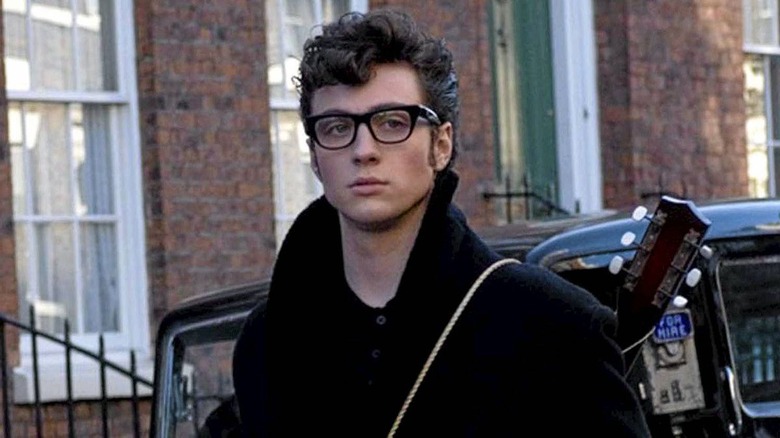
Despite the overwhelming impact that the Beatles have had on pop culture, there have been surprisingly few biopics about the members of the famous Liverpool band. Out of all the Beatles, John Lennon had perhaps the most cinematic early life: He came from a working-class background and was raised by an aunt while his mother was in and out of his life, before dying in a car accident when Lennon was a teenager.
"Nowhere Boy" highlights the formative experiences of a young Lennon (Aaron Taylor-Johnson, whose breakthrough performance came via this film) as he struggles with his family and forms the band that would evolve into the Beatles. Taylor-Johnson brings a rebellious edge to the young rocker, and is more than capable of emulating Lennon's unique singing voice. It's especially enjoyable to watch his first collaborations with a young Paul McCartney, played by Freddie Highmore.
A Beautiful Day In The Neighborhood
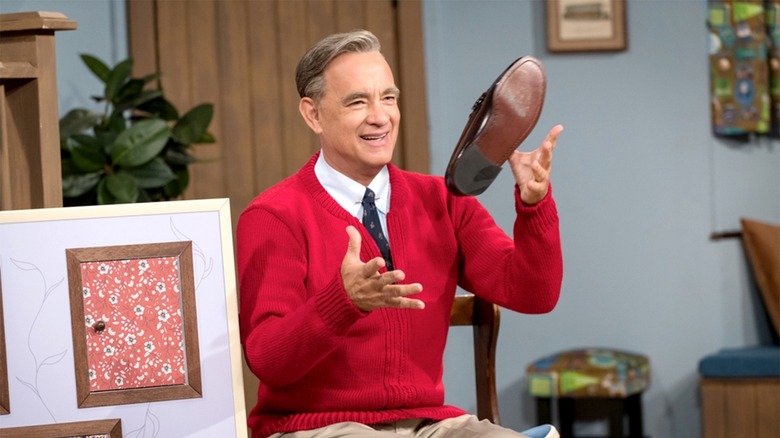
"A Beautiful Day in the Neighborhood" is partially a biopic about Fred Rogers, the legendarily endearing star of "Mr. Rogers' Neighborhood." But in many ways, it's also a deconstruction of what it means to be a man, and how men can overcome generations of being taught that the only outlet for their emotional turmoil is anger.
Tom Hanks is the natural pick to play Rogers, since he's been campaigning for the title of Nicest Man in America for the past four decades, but director Marielle Heller subverts expectations by showing a side to the famed children's entertainer that isn't normally seen. This is not a man who is just preternaturally kind and gentle by nature: his behavior is a choice that he makes every day, regardless of how he might be feeling. It humanizes the character and also allows for a note of optimism that combats the cynicism embodied by Matthew Rhys, who plays an emotionally fraught journalist tasked with interviewing Rogers.
Belle
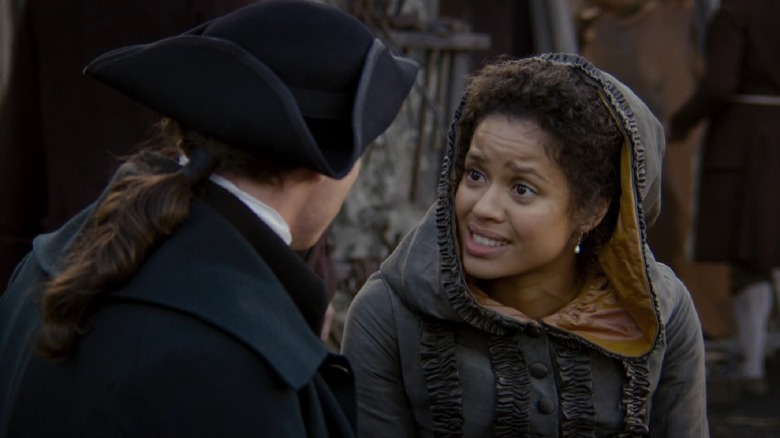
Director Amma Asante fully breaks the rules of the biopic with "Belle," choosing as her subject a young mixed-race woman from 1700s England of whom there are few historical records beyond a striking portrait that, unusually for the time, depicts her as equal in social standing to the white woman next to her. From this, Asante builds out the story of Belle (Gugu Mbatha-Raw), who was raised in an upper-class English household amidst her extended family.
Here, Belle occupies a precarious position: Privately, she is a beloved member of the family, but because of social rules of the day, there are always distinctions that have to be maintained between Belle and her white relatives. She was brought up and educated with her cousin (Sarah Gadon), but as they both come of age, it's clear that they have very different life prospects, especially in regards to marriage. Mbatha-Raw's performance is full of charm and defiance, as she finds space for herself in English society without compromising or making herself smaller to fit in.
The Imitation Game
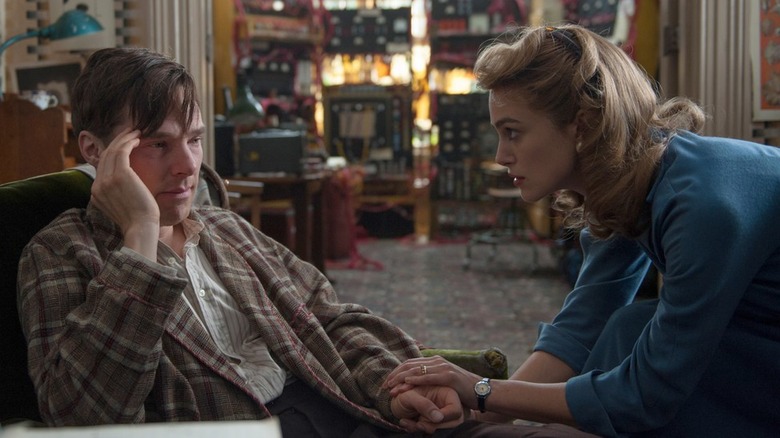
Bow down to Benedict Cumberbatch, the king of the English biopic. Seriously, these types of roles are catnip to him -- he can't resist. In "The Imitation Game," Cumberbatch plays Alan Turing, a gay computer scientist who was tasked with breaking the German Enigma code during the Second World War.
The film sugarcoats the injustices that Turing suffered later in life as a result of homophobic legislation in England (in the early '50s, Turing was chemically castrated after being prosecuted for homosexual activities). But, for the most part, "The Imitation Game" is a sensitive and empathetic portrayal of Turing and the team of codebreakers who played a significant role in helping the Allies win the war.
Cumberbatch would receive his sole Oscar nomination for this performance, and the film would be nominated for seven others (including a best supporting actress nod for another giant of the English period drama, Keira Knightley, who plays Joan Clarke, Turing's fiancé, confidant, and a gifted cryptanalyst), winning an Academy Award for best adapted screenplay.
The White Crow
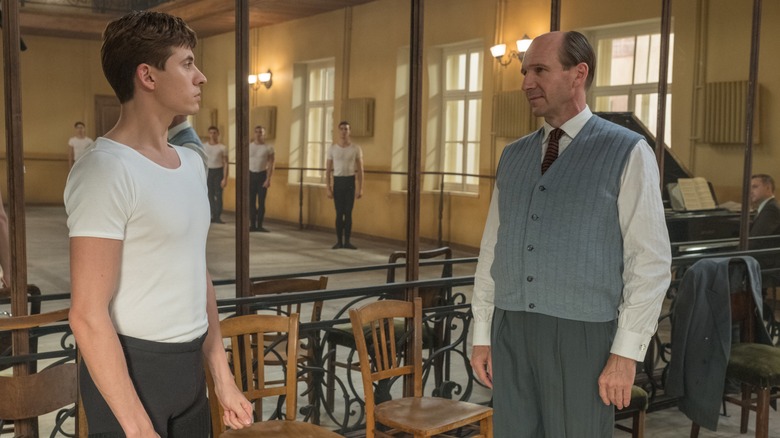
In many ways, Rudolf Nereyev is not the easiest subject for a biopic. He was widely regarded as arrogant, demanding, and sometimes even cruel. But as one of the greatest male ballet dancers in history, he has a grace and sense of individuality that makes him an incredibly compelling lead.
Director Ralph Fiennes splits the narrative of Nereyev's life into three distinct parts: his childhood in remote Siberia, his days training at a demanding Russian dance academy, and his professional career on tour in Paris, under the watchful gaze of Soviet handlers.
Fiennes occasionally loses the narrative thread, and doesn't always know which parts of Nereyev's story to focus on. However, one utterly exceptional scene towards the end makes up for any flaws earlier in the film: Nereyev's dramatic, exquisitely tense defection from the Soviet Union at the airport in Paris. This entire sequence is remarkably well-directed by Fiennes and acted by Oleg Ivenko, and breathes new life into "The White Crow."
Colette
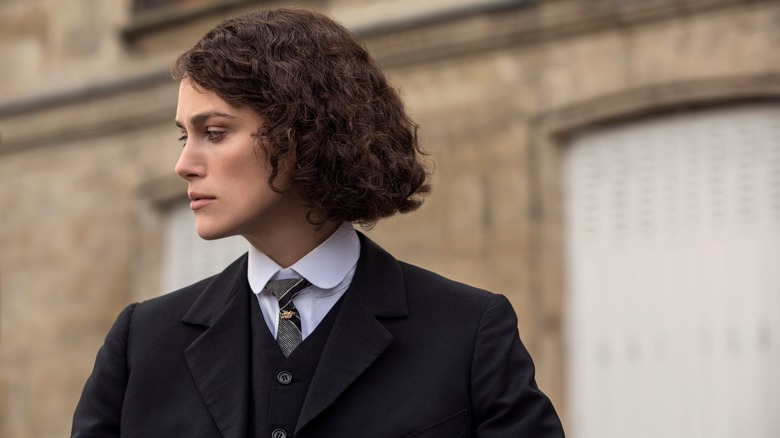
Sometimes the best biopics are based on stories that most modern audiences aren't necessarily familiar with. When you make a film about Winston Churchill, for instance, there's a lot of pressure to get everything right. You have to drown your lead actor in facial prosthetics and make him do the voice, because people know what Churchill looks and sounds like, and there's a danger of losing audiences if you go too far afield.
With that in mind, there's a certain freedom in zeroing in on a historical figure who lived a fascinating life, but whose image isn't burned into the brains of everyone walking into the theater. Keira Knightley captures the essence of the French author Colette without us really needing to know anything before watching film. She has an incredible free-spirited nature, and it's so rewarding to watch her come in to her own as she blossoms into someone who isn't afraid to embrace gender fluidity, explore her sexuality, and develop a professional writing career completely apart from her domineering husband (played by Dominic West). The first time that Colette struts out in a men's suit, completely self-possessed, you feel proud -- it's like watching your kid graduate from high school.
Lincoln
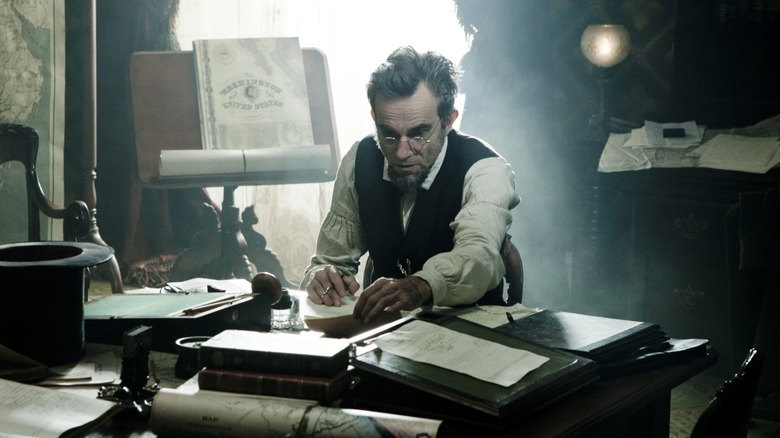
The lion's share of the praise for "Lincoln" should go to Daniel Day-Lewis. Without his towering performance as the larger-than-life American president, this would be a fairly conventional, perhaps even uninspiring, biopic. But Day-Lewis brings a powerful sense of purpose to the role, quietly delivering monologues that completely enrapture the audience.
This performance would earn Day-Lewis his third Academy Award, making him the only male actor to have ever received three best actor Oscars. His dynamic with Sally Field, who plays the tragic Mary Todd Lincoln, is genuine and loving, bringing an intimacy to the otherwise grand production of "Lincoln." Director Steven Spielberg makes a wise decision to build his narrative primarily on the last few months in Abraham Lincoln's life, specifically his fight to get the 13th amendment ratified by the US Congress. This allows him to approach the story with a tremendous focus, preventing it from meandering in an effort to try to fit the bulk of the Lincoln's biography into one single film.
I, Tonya
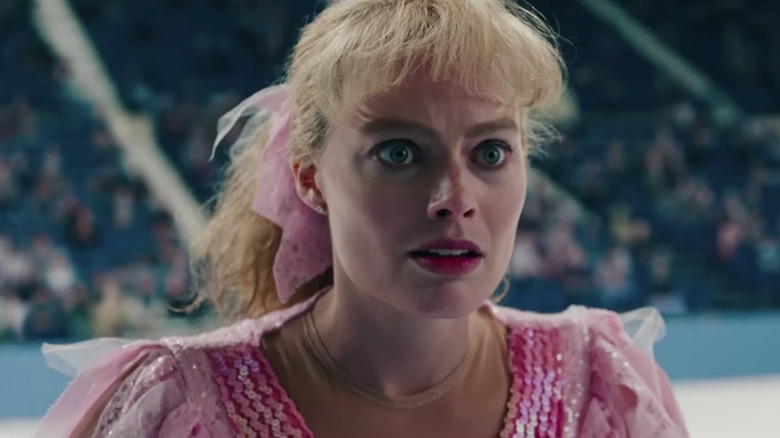
Forget the biopic: Let's talk about the autobiopic. And for good measure, let's throw in an unreliable narrator. That's what we get in "I, Tonya": Tonya Harding telling her own life story, making a case for herself as a (mostly) innocent victim in one of the most notorious sports scandals in history. Margot Robbie portrays Tonya Harding as a larger-than-life figure, a woman from the wrong side of the tracks with tremendous talent and ambition, but an equally outsized ability to self-sabotage.
Throughout the entire film, Harding has a defensive stance, quick to make excuses for herself and explain away any bad behavior by passing the blame to someone else. But despite the fact that Harding is often an architect of her own misfortune, it's hard to see the trajectory of her life and not feel sympathy for her. She really did get a raw deal growing up, and didn't have the kind of support that she needed. Some part of us responds to her triumphantly chaotic energy, almost against our better judgment.
Good Night, And Good Luck
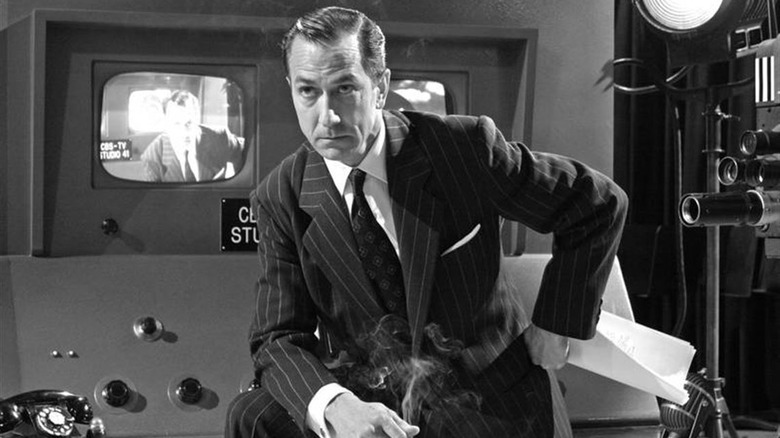
In George Clooney's sophomore directorial effort (and the first film that he also co-wrote), he turns his attention to the world of media and the threats that reporters face when the quest for ratings comes into conflict with journalistic ethics. The hero of "Good Night, and Good Luck" is Edward R. Murrow, the celebrated broadcast journalist who sprung to prominence as a war correspondent and was, by the early '60s, one of the most trusted faces on television. He is played by David Strathairn, who would be nominated for an Academy Award for the performance, and who captures the spirit of unadulterated integrity that defined Murrow throughout his career.
But Strathairn also brings a different but equally authentic quality to Murrow: his weariness at some of the demands of his job. Murrow balks when he's asked to do fluffy celebrity interviews, like the one with Liberace that's featured in the film, and offers a palatable feeling of dislike when forced to defend himself against hollow accusations from Senator Joseph McCarthy, whose Cold War-era witch hunt had grown tiresome by this point in history.
Rocketman
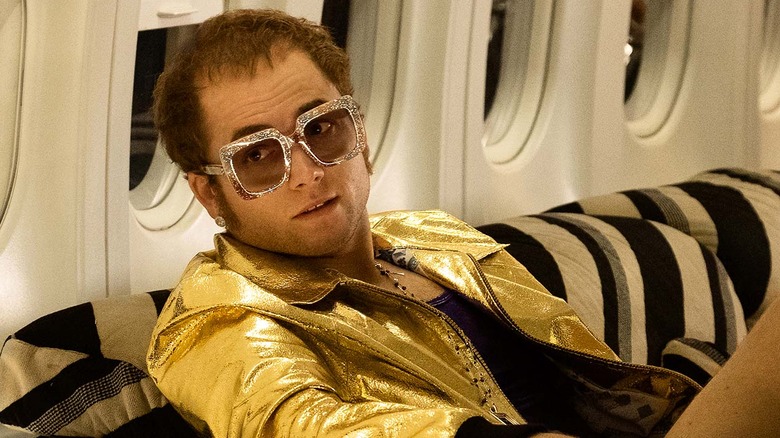
It's honestly ridiculous how many biopics about tremendously creative and unconventional artists end up being dull, tedious, hyper-traditional affairs ("Bohemian Rhapsody", we're looking at you). That's what makes "Rocketman" an unusually effective biopic: It captures the spirit of the larger-than-life Elton John. His performances are flashy and overtly theatrical, so why shouldn't a story about his life be as well? (It probably helps that John was intimately involved in the production of the film.)
The fact that it's a musical is also a bonus, as "Rocketman" ingeniously uses the artist's discography to both create wild and over-the-top musical numbers and to explore his youth, career, downfall, and resurgence. Taron Egerton has never gotten the credit he deserves for his work bringing to life Elton. Frankly it's an insult that, of all the musician biopics to earn best actor prizes at the Academy Awards, Egerton wasn't even nominated.
Jackie
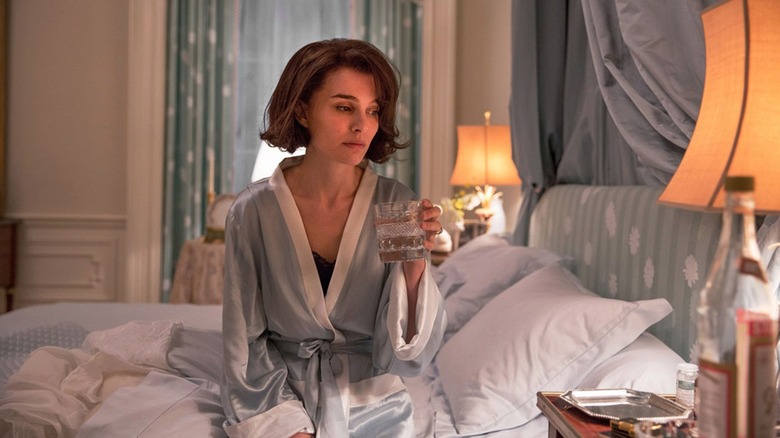
Director Pablo Larrain is beginning to develop something of a reputation for depicting famous female historical figures in crisis. Years before "Spencer," his film about Princess Diana, he directed "Jackie," a movie exploring the life of Jackie Kennedy after her husband's assassination. She meets with a journalist from Life magazine and reflects upon her time in the White House, as well as that fateful day in Dallas that saw her husband dead, her children left fatherless, and a nation in shock.
Natalie Portman plays Jackie, and from her perfectly coiffed hair and attire to her very distinctive vocal affectation, she fully embodies the graceful, poised woman who captured the imagination of the American people. This performance led to Portman's third Academy Award nomination, and plenty of viewers would make the argument that she should have won for her performance here. At the very least, "Jackie" should have taken home a trophy for costuming: Jackie's outfits are iconic.
The Aviator
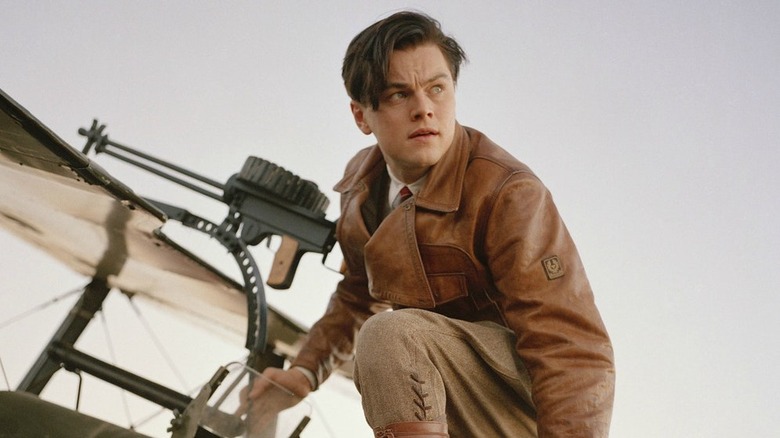
Howard Hughes led a fascinating but kind of ridiculous life, so it's appropriate that the biopic about him, "The Aviator," is fascinating but kind of ridiculous as well. Martin Scorsese's opus is bloated and meandering, but brilliant in spite of itself. Leonardo DiCaprio plays Hughes, a man who was perhaps best known for the mental health issues that would dominate his later life (he experienced symptoms of severe obsessive-compulsive disorder, and was paralyzed by germaphobia during his worst relapses).
But Hughes was also an innovator and an entrepreneur with a keen attention to detail and connections to the beating heart of classic Hollywood. Aside from DiCaprio's commanding lead performance, "The Aviator" is best known for celebrity cameos that bring to life starlets from the golden age of cinema, most notably Cate Blanchett as Katharine Hepburn, a performance that would win her the first Academy Award of her career.
The Social Network
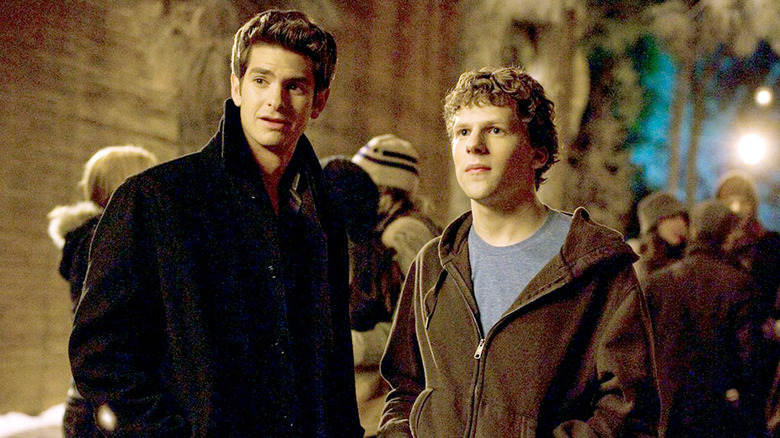
How incredible is it that an unflattering biopic was made about Mark Zuckerberg during an era when he was championed as one of the greatest innovators in all of history? Anyone else would have made "The Social Network" a triumphant exploration of Zuckerberg's early life, reveling in the strokes of genius that led him to invent Facebook. But director David Fincher and writer Aaron Sorkin cast a much more critical eye at the social media founder; "The Social Network" isn't a smear campaign, but it's damning enough that, as we learn more about the unscrupulous behavior that led Facebook to become a key purveyor of political misinformation, it comes across as oddly prescient.
Jesse Eisenberg plays Zuckerberg as both an intelligent computer developer but also a frustrated nerd with an inferiority complex; not only is he perfectly willing to step over people who get in his way, but he barely even seems to recognize that his actions might upset others. Eisenberg is flanked by the excellent Andrew Garfield as Facebook co-founder Eduardo Saverin, whose college friendship with Zuckerberg grows into outright animosity as Facebook evolves into a social media juggernaut.
First Man
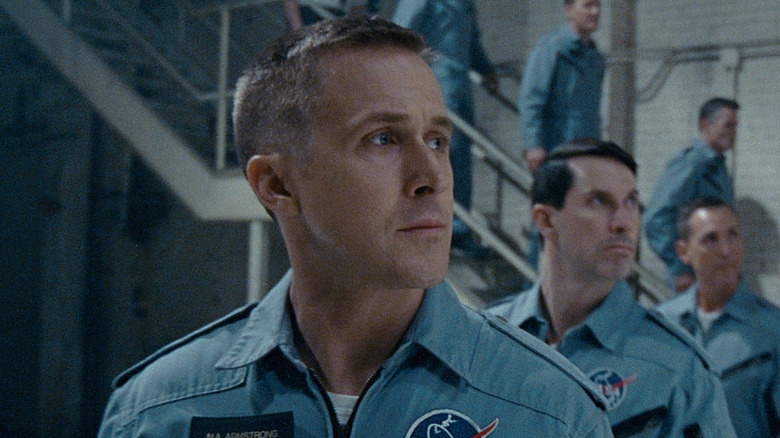
"First Man" has never gotten the credit it deserves. In bringing to life the story of Neil Armstrong and the Moon landing, it also manages to capture a surprisingly intimate character study of the American hero. Years before Armstrong made his famous flight, his daughter died from cancer, and so much of "First Man" is a tender exploration of grief from a man born into a generation that didn't have the language for male sorrow. Men were expected to be strong and stoic, and you see that in Ryan Gosling's interpretation of Neil Armstrong.
This is a man who would rather fly all the way to the moon than talk to someone about his feelings. Claire Foy is also incredibly powerful as Janet Armstrong, turning in so much more than just another "concerned yet supportive wife" performance. "First Man" also does an incredibly good job of showing the unbelievable sacrifices that early astronauts made, testing equipment that could -- and often did -- kill them long before they reached the stars.
Read this next: The Best Movies Of 2021 So Far
The post The 14 Greatest Biopics of the 21st Century appeared first on /Film.
0 Commentaires